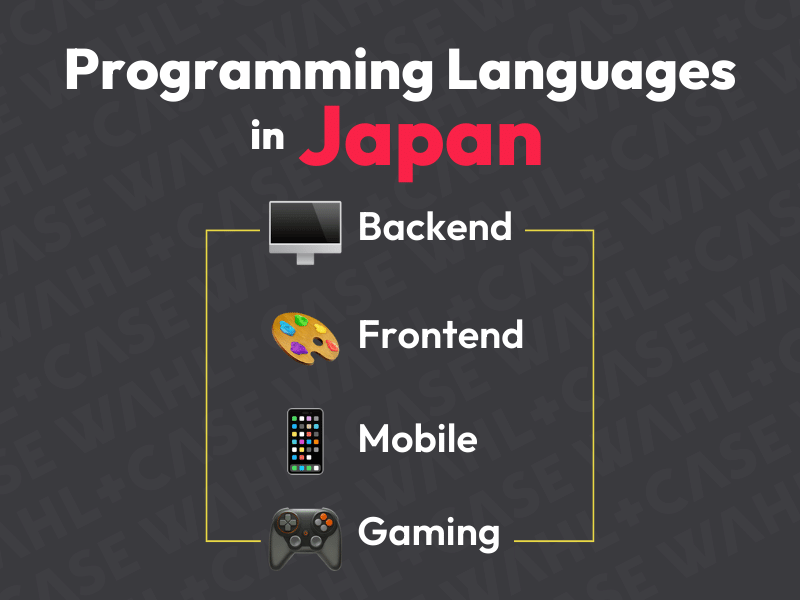What is an E-commerce Strategist?
E-commerce has become an essential part of modern retail, and its growth shows no signs of slowing down. With the rise of online shopping, businesses are increasingly relying on e-commerce strategies to drive sales and customer engagement. As a result, the role of an E-commerce Strategist, also known as E-commerce Specialist or E-commerce Manager, has become increasingly important.
In this article, we will explore what an E-commerce Strategist is, their responsibilities, the opportunities available in this field, and the requirements needed to become an E-commerce Strategist.
Here at Wahl+Case, we have helped dozens of people land jobs at e-commerce giants like Amazon, Rakuten, Ebay or Shopee as well as brands like Koala or Kindware.
If you want to find your next career step in e-commerce, we can help you.
What is an E-commerce Strategist?
An E-commerce Strategist is a professional responsible for developing and executing strategies that drive online sales and improve the overall customer experience on the platform. They work with various teams within an organization, such as marketing, product, and IT, to identify and implement solutions that optimize the e-commerce experience. An E-commerce Strategist is an essential part of any e-commerce operation, as they have a deep understanding of the customer journey, the online sales funnel, and the technology required to drive successful e-commerce initiatives.
Responsibilities of an E-commerce Strategist
The goal of an E-commerce Strategist is to maximize revenue and profitability from customers using their e-commerce platform. This leads to many responsibilities, ranging from managing the customer experience to working cross-functionally with different departments. Here are some of the key responsibilities of an E-commerce Strategist:
Manage the e-commerce Experience
An E-commerce Strategist is responsible for managing the customer experience on the e-commerce platform. They work with UX designers to create a seamless customer journey, from the moment a customer arrives on the site to the point of purchase. They analyze the website's performance and identify areas for improvement, such as reducing page load times and improving website navigation. Additionally, they ensure that the website is fully optimized for mobile devices, as mobile traffic continues to grow.
Offering an extraordinary website experience is key to stand out from the myriad of other online retailers and to ensure this an E-commerce strategist has to constantly monitor competitors and keep up with the latest trends like live video shopping.
Conversion Rate Optimization
An E-commerce Strategist is responsible for improving the website's conversion rates through AB testing and data analytics. They analyze customer behavior and user data to identify areas for improvement, such as reducing cart abandonment rates and improving the checkout process. They work with marketing teams to create compelling product descriptions and promotions that entice customers to purchase.
CMS / Content Management
An E-commerce Strategist manages the website's content management system, from product launches to general content updates. They ensure that the website's content is accurate, up-to-date, and optimized for search engines. They also work with marketing teams to create and execute promotional campaigns, such as email marketing and social media advertising. An optimized CMS will help to drastically increase the average basket size of the user.
Work Cross-functionally
An E-commerce Strategist has to be comfortable working cross-functionally with different departments, such as marketing, product, logistics or data teams. Creating an effective customer experience across all your channels requires open communication across teams and efficient processes. Collaboration is key to avoid silos and map out conversion-boosting customer journeys. When working for an international organization, E-commerce Strategists also need to collaborate with other overseas locations as well as HQ to make sure the overall brand presentation is aligned and to share successes, failures and best practices.
Opportunities in E-commerce Strategy
E-commerce is a rapidly growing industry with a fierce competition. This leads to an ever-increasing demand for qualified e-commerce professionals who can drive online sales and improve the customer experience. As a result, there are numerous opportunities available in this field.
Career Growth
The demand for E-commerce Strategists is increasing, and as a result, there are numerous opportunities for career growth. E-commerce Strategists can advance to roles such as E-commerce Manager, Director of E-commerce, or VP of E-commerce. They can also specialize in areas such as conversion rate optimization or digital marketing.
Competitive Salary
E-commerce Strategists are highly sought after, and as a result, they can expect a competitive salary. The average salary for an E-commerce Strategist in Japan is between ¥6,000,000 and ¥10,000,000 depending on your level of experience. For E-commerce Managers that number goes up to ¥8,000,000 to ¥12,000,000.
Entrepreneurship
E-commerce Strategists can also start their own businesses, leveraging their expertise to create and launch successful e-commerce operations. With the rise of platforms like Shopify and WooCommerce, starting an e-commerce business has never been easier. After a few years of being employed, E-commerce Strategists can use their knowledge and experience to create a successful online store, from product selection to website design and marketing.
Requirements to become an E-commerce Strategist
Here are some of the key requirements and skills needed for E-commerce Strategists.
Sales/Marketing background
An E-commerce Strategist should have a background in sales or marketing, especially promotional marketing, as they need to understand how to drive online sales and create effective marketing campaigns. This includes knowledge of customer segmentation, promotion creation, and marketing messaging. A key component to maximizing online sales is merchandising, the process of organizing and displaying products in a way that is appealing to customers and encourages them to make a purchase.
Passion for Data
An E-commerce Strategist should have a deep understanding of e-commerce metrics, especially conversion rate optimization (CRO) activity and A/B testing. This includes knowledge of website analytics tools, such as Google Analytics, and the ability to analyze data to identify areas for improvement.
Design Fundamentals
An E-commerce Strategist should have a basic understanding of digital design fundamentals, such as UX and user-centered design. This includes knowledge of website design principles, including layout, color, and typography.
Familiarity with Tools & Technology
An E-commerce Strategist should be familiar with various tools and technologies used in e-commerce, such as Contentful, JIRA, Confluence, Google Suite, CommerceTools, and others. This includes the ability to use these tools to manage content, analyze data, and optimize the e-commerce platform.
Conclusion
Nowadays the role of an E-commerce Strategist is essential for any e-commerce (probably every retail) operation, as they are responsible for developing and executing strategies that drive online sales and improve the customer experience. As e-commerce continues to grow, the role of an E-commerce Strategist will become increasingly important, providing exciting opportunities for those who are passionate about the .
If you are interested in e-commerce roles in Japan, get in touch with us.
You can also visit our LinkedIn Jobs page to see a sample of the jobs we currently work on.























